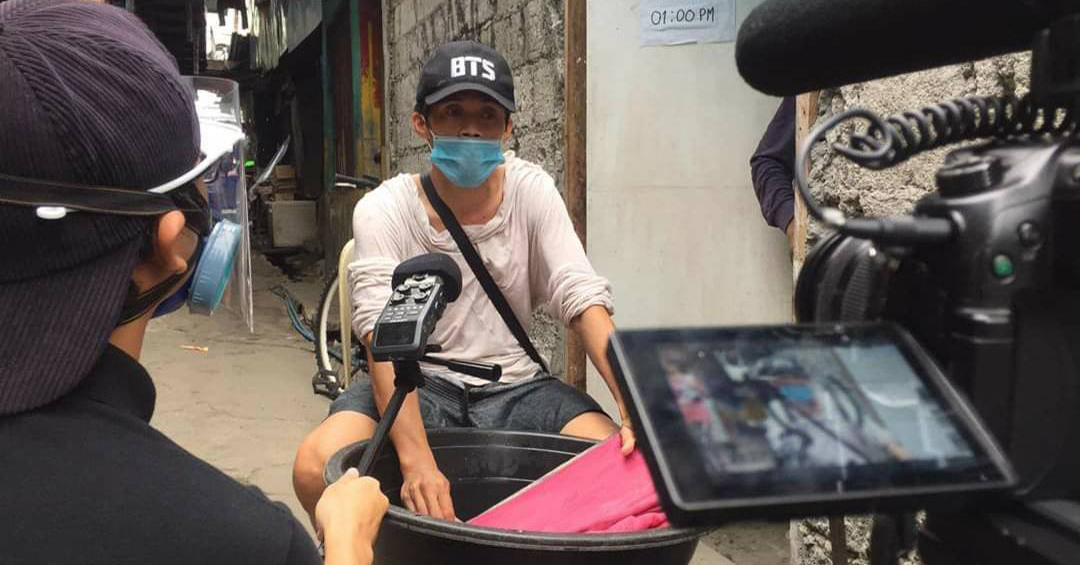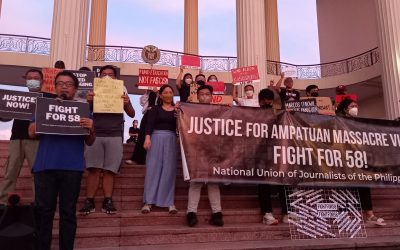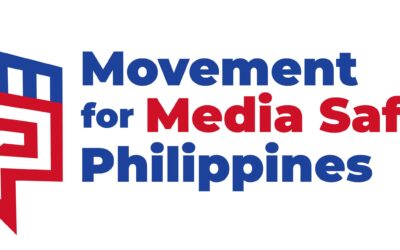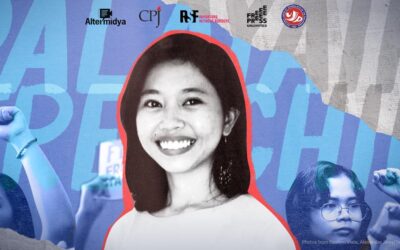How COVID-19 attacked journalists’ resilience
by Alyssa Mae Clarin, NUJP Bulatlat chapter
MANILA — Between the low wages, the daily grind on the field, and many deadlines, journalism has never been a relaxing job. As the COVID-19 pandemic continues to put the country in a chokehold, working in the media industry has worsened.
For Filipino journalists, the pandemic also brought several obstacles; the shutdown of ABS-CBN, the closure of several smaller media outfits, and the possibility of contracting the virus while on the job has brought journalists’ welfare to another level of risk and precarity.
As a result, the National Union of Journalists of the Philippines, in partnership with UNESCO, conducted a series of peer support training sessions in different parts of the country. These activities aimed to help journalists learn how they could effectively handle the stress they accumulate from their work as journalists, especially with pandemic as an added risk.
Much like everything else, the majority of the media industry had also transferred its operations online. However, by nature, journalists cannot afford to stay at home all the time.
While it seemed like everything had slowed down, the pandemic did not put a halt to the daily news cycle. If anything, it speeded it up and added more stories that needed to be covered.
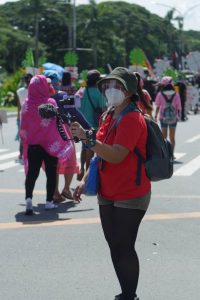 At work, journalists continue to risk their health — and the health of their loved ones — in fulfilling their duty to inform the general public.
At work, journalists continue to risk their health — and the health of their loved ones — in fulfilling their duty to inform the general public.
Some journalists had to live away from their homes as a precaution. They continue to work in the field despite the many restrictions to report the pandemic’s complexities to the public properly.
And on top of all that, the government’s relentless attacks against critical media also continued as colleagues in different areas report a sudden spike in harassment ever since the start of the lockdown.
Journalists who criticize the government’s response to the pandemic find themselves facing libel or cyber libel because of their reportage. Journalists like Lady Ann Salem are arrested under false charges as an apparent attempt to silence critics.
With all these events happening all at once, it is no surprise that a lot of journalists are experiencing severe mental fatigue.
During the sessions, Health Action for Human Rights psychiatrist Dr. Reginald Pamugas continued to remind everyone that journalists, no matter how resilient, are not superheroes.
“There is no need to carry this burden alone. That is why we need peer support,” said Dr. Pamugas.
Although not a substitute for professional help, peer support is considered the ‘first aid’ for trauma and can help alleviate the invisible wounds that every individual bears by connecting with someone who could understand the occupation’s hardship.
While there are multiple ways to handle the stress we get from our job — from breathing exercises, establishing sleep hygiene, and having a healthy diet, we can handle some problems better through conversations.
The NUJP plans to continue building Peer Support Networks throughout the country to establish a reliable support system for Filipino journalists.
“We all need to remember that seeking help, may it be from peers or professionals, is not a sign of weakness.”
More from Diarista 2021
Fight for justice for Ampatuan Massacre victims continue, kin says
The pursuit for justice for victims of the 2009 Ampatuan Massacre is far from over, three years after several of the accused including members of the Ampatuan clan were convicted for multiple counts...
NUJP, lawyers groups ink partnerships for legal defense of journalists
PHOTO: NUJP secretary general Len Olea and project manager Paul Soriano pose with IBP president Atty. Burt Estrada and executive director Atty. Randall Tabayoyong after the ceremonial signing of...
NUJP North America joins groups in launching Ma. Ceres Doyo’s book about Martial Law
The National Union of Journalists of the Philippines - North America chapter joined other writers, journalists and rights advocates on September 12 in launching veteran journalist Ma. Ceres Doyo’s...

